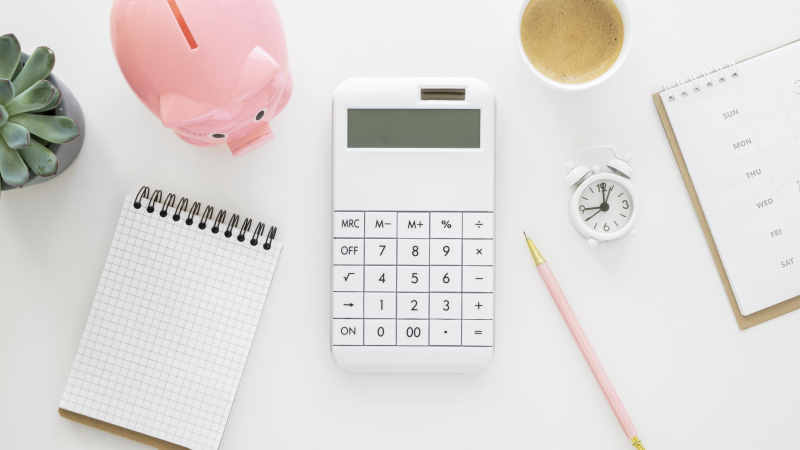The economic impacts of the pandemic have been widespread. Lockdowns, public health restrictions, and a loss of consumer confidence have led to temporary layoffs, business closures, mounting personal and business debt, and a growing financial crisis among business owners and workers. Younger people and those who can’t work from home have been the hardest hit, as well as owners of restaurants, independent retail, and entertainment venues.
But as vaccination efforts advance around the globe and economic recovery is on the horizon, now’s the time to prepare for life after COVID. For many people, a big part of that life is going to include a personal financial recovery.
With so many people making big life changes and taking on debt to get by during the pandemic, restoring their financial health will be a priority for many. These tips will help you get out of pandemic debt and take back control of your financial situation.
Find Out If You Owe Tax Debt
Around the globe, governments have spent significant sums of money supporting individuals and businesses. In Canada, where 8.9 million people received a $500-per-week benefit called CERB, those supports were made taxable income, requiring Canadians to pay a portion back a year later.
Given the financial constraints many have been under over the past year, that may be money they simply no longer have. Given the choice between making rent or buying groceries versus holding onto $400 out of $2,000 for the month, many chose their immediate needs. But now those tax bills are coming due.
The first thing you should do is make sure you don’t owe tax debt if you received government support. If you did, pay it back or get in touch with your tax collection agency to work out a payment plan.
Work with a Credit Counselling Agency
Managing money isn’t easy. If you feel like you just don’t get how to make it work, don’t worry. Financial literacy is a skill that’s rarely taught in school, but it’s still something you can learn.
A non-profit credit counselling agency can help you with money management. During a credit counselling appointment, a certified Credit Counsellor will review your financial situation, build you a budget that will stabilize your finances, provide tips to help you rebuild your credit, and solve your debt problems. A non-profit credit counselling agency can also provide online debt consolidation through a Debt Consolidation Program (DCP). A DCP provides relief from interest charges and collection actions, giving you a clear timeline for getting out of debt.
Don’t be afraid to reach out for help with debt problems. One study found that while the majority of people believed they were financially literate, 6 out of 10 failed a financial literacy test that quizzed them on their understanding of credit cards, mortgages, insurance, and more. A non-profit credit counselling agency will set you up for success and give you the tools you need to master your finances for the rest of your life.

Adjust Your Budget to Reflect Lifestyle Changes
As things begin to open up and you go back to work, your lifestyle will change rapidly. Around the world, many people have spent the last year largely cooped up in their own homes and apartments, not seeing friends or doing much for entertainment. Even clothing budgets have changed, as evidenced by the many bankruptcies filed by business wear companies around the world.
Even if you don’t need a suit to go back to work, there will be other expenses coming back into your life, such as grabbing breakfast on the go or meeting friends for coffee or drinks after work. As tempting as it will be to splurge once life goes back to normal, sticking to a budget will help you curtail those expenses and put your income toward the debt you took out to scrape by during the previous year.
If you can afford it, it will be a good idea to budget for fun and entertainment after a year of on-again-off-again lockdowns. It always helps if you’re able to reward yourself for sticking to a budget. A bit of financial freedom will help you stay on track and continue to pursue your goals rather than give up out of frustration.
Save an Emergency Fund
Your first goal should be to get out of debt, especially the high-interest variety like credit cards. Once you’ve done that, it’s time to set your sights on an emergency fund. The need for an emergency fund has never been clearer after a year of COVID-19.
Unfortunately, pre-pandemic, half of all households had no financial plan for emergencies, including a rainy-day fund. If the pandemic impacted their income, those households relied on government supports and credit to bridge the gap – a gap that grew longer than anyone anticipated.
How much should you save in your emergency fund? There is no one-size-fits-all answer to that question, but a common recommendation is that you should start with $1,000 to cover unanticipated expenses and then build it up to six months’ living expenses alongside saving for other financial goals such as investing in your retirement.
Think about where you should keep your emergency fund. You may feel most comfortable keeping it in your checking account, but if you don’t use it, it will slowly lose value to inflation. Some alternative options include high-interest savings accounts available through online banks or a money market account with a local bank, though you may face withdrawal limits. Accessibility should be a priority with your emergency funds.
Plan for the Future
For many, it’s been hard to plan past the next day, let alone the next year. You’d be forgiven for setting your future plans and goals aside recently. It’s been impossible to predict what happens next. But as life goes back to normal, it’s time to plan for the future. What are your dreams and ambitions? What do you need your financial situation to look like before you can turn them into a reality? You have to know what you want before you can save for it.
You can take back your finances after the pandemic. Solve your debt problems, save for an emergency, and start planning for better things to come.
